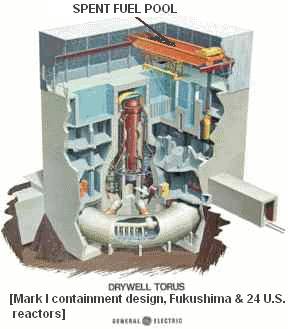Michael Collins

The Chairman of the United States Nuclear Regulatory Commission (NRC), Gregory Jaczko, told a US House of Representatives subcommittee that: "There is no water in the spent fuel pool [at the Fukushia I plant] and we believe that radiation levels are extremely high, which could possibly impact the ability to take corrective measures." A "utility spokesman" for Tokyo Electric responded quickly claiming that the "condition is stable." AP, March 17.
The >New York Times, China's Peoples Daily, and other outlets covered this extraordinary asymmetrical exchange between the highest nuclear regulatory official in the US government and a "utility spokesman."
The public disagreement between two close allies in the midst of a severe crisis is highly instructive on a number of levels. If chair Jaczko wrong, it is a terrible embarrassment for the US. If he's right, we can conclude that much of the information from Tokyo Electric is questionable.
Recent comments